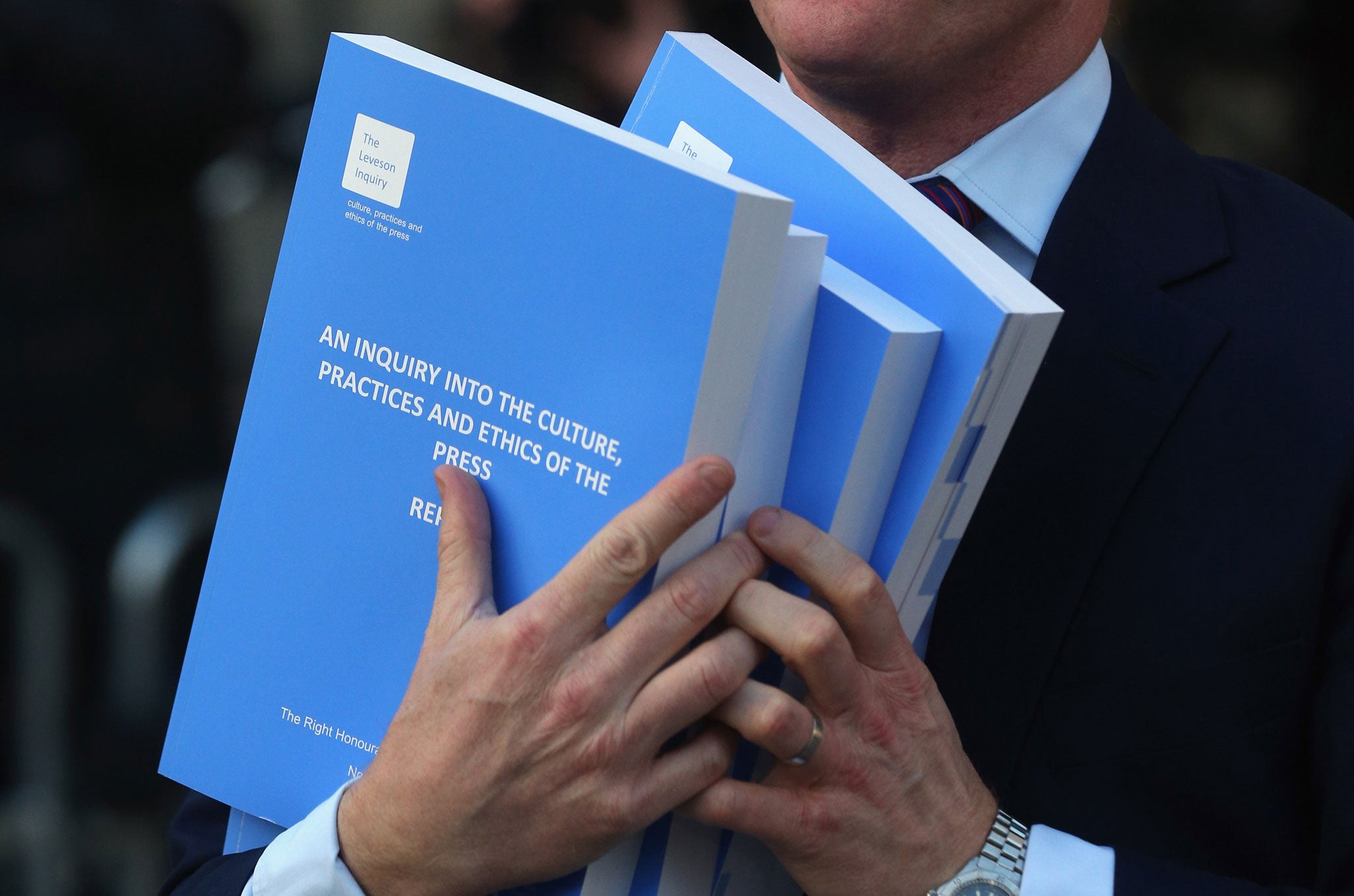Well-judged and well-received: if Leveson is Santa, this is shaping up to be a wonderful Christmas
Our writer, a former Director of the Press Complaints Commission, declares himself happy with Leveson's report

There was an almost festive air of anticipation in and outside the Queen Elizabeth Conference Centre in central London yesterday. Shouts by protesters, photos by sightseers. Everyone waiting to see what sort of parcel would be delivered by an elderly gentleman usually dressed in red and wearing a grey wig. Well, unlike at Christmas, it is hard to see much cause for disappointment with what he did bring with him.
On the one hand, Leveson had been asked to provide an answer to all of the victims of a sometime reckless and invasive press, so that they can feel that their ordeals were not in vain. On the other, there rests one of the crucial issues for any sophisticated democracy: how do you guarantee a free press?
His answer is well-judged, and – even amid the clatter of politicking that it is already occurring – we should not lose sight of the fact that there can be immediate agreement about most of the crucial issues.
There will be a new self-regulatory body. It will have powers of investigation and to impose fines. It will have, for the first time, a clear mandate to raise standards. These are the proposals already agreed by the newspaper industry, and indeed proposed some months ago by the Press Complaints Commission, which has already agreed to dissolve itself. They can be begun immediately, and should be.
As expected, it is the statutory underpinning that is exciting everybody. Leveson has stopped short of statutory regulation, but has suggested something that gives us self-regulation on statutory probation. The role of Ofcom would probably be uncontroversial in theory, but very hard to implement in practice. What happens if Ofcom judges the new regulator to have failed? What if the regulator fails to get everyone to join? Essentially, Leveson throws his hands up in the air.
There are other difficulties. The report has a section called “the relevance of the internet”. It is 792 words long. Leveson has shut his ears to the trumpeting elephant in the room: the online world that will make much of the structure he is proposing to be irrelevant in 10 years. And what of the PCC itself, of which I was once a director?
I was pleased the work of the staff, who have done a brilliant job over the years, has been recognised. Leveson himself appears to note that the PCC was quite good at the job it was given: handling complaints and dealing with pre-publication concerns. This work will continue in the new body, but it was never enough.
The new regulator will have a clear set of functions and powers. The industry should put aside its traditional squabbles and get it up and running.

Join our commenting forum
Join thought-provoking conversations, follow other Independent readers and see their replies